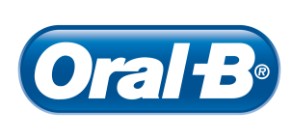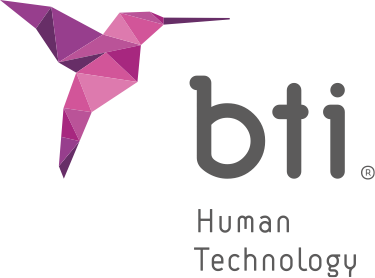Postponed to 12 -14 November 2021 following further Covid-19 updates.
All delegates should have received email confirmation of the new date. Please email conferences@bsperio.org.uk if you have any queries.
It is a great privilege to introduce the 2021 BSP conference focusing on hard and soft tissue regeneration. A parallel session addressing the clinical challenges of peri-implant diseases by a panel of experts is also organised for Sunday. With the additional sponsored hands on workshops and lectures on both topics that will take place on each day of the congress, I am certain that this will be an excellent event for specialists, general practitioners and hygienists/therapists.
Prof Nikos Donos BSP President 2020
Programme
Friday 12 November (afternoon)
On Friday afternoon the BSP will host the first of the Corporate Sessions of the conference, the prestigious Sir Wilfred Fish Research Prize Presentations and the Teachers' and Practitioners' and Early Career Group Section Meetings.
Click here to see the programme
Saturday 13 November
The theme for the Saturday morning will be periodontal regeneration.
Saturday afternoon will cover biologic active agents.
Click here for Saturday programme
Sunday 14 November
Sunday morrning will focus on soft tissue regeneration around implants and teeth, with parallel sessions on diagnosis and treatment of peri-implantitis.
On Sunday afternoon the theme will be bone regeneration and treatment considerations for an ageing population.
Click here for Sunday main congress
Click here for Sunday parallel session on peri-implant diseases
Accommodation
Melia White House, London
Albany Street, Regents Park, London, NW1 3UP
A number of rooms have been reserved at a rate of £210/£225 per night single/double occupancy B&B.
Please note rooms must be booked by Friday 8 October 2021 and are available on a first come, first served basis.
The hotel is situated a short walk away from the Royal College of Physicians, Great Portland Street, Regent's Park and Warren Street tube stations, and a five minute taxi ride from Euston, Paddington and Kings Cross St Pancras.
Poster Prize Competition
There will be a poster prize competition with two categories, Research and Clinical Case Report.
The prizes are open to members and non-members of the Society and to international competition.
All entrants will be expected to register for the conference.
The prizes each take the form of a cash reward of £500 together with a certificate. In the event of the award for either a Research of Clinical Case Report being awarded to joint winners, the prize money will be equally shared. Full details on how to apply can be found by following the link below.
Poster Prize Application Details
Conference Dinner
Saturday 13 November, 1930 - Midnight
The conference dinner will be held in the prestigious Great Hall at Barts. Please join us for a private drinks reception, followed by 3 course dinner and dancing until midnight.
Ticket cost: £90
Dress code: cocktail dress / lounge suit
Early Careers Group Social Event
There will be a social event organised for the Early Career Group on the evening of Friday 12 November, venue TBC. This should provide a great opportunity for members to meet and network in a relaxed environment.
Please register interest when booking, a deposit of £10 is required.
Sponsorship & Trade Exhibition
The trade show will take place on 13 & 14 November 2021.
If you wish to sponsor the event or exhibit at the event, please contact: .(JavaScript must be enabled to view this email address) for further information.
Fees
| BSP Conference 2021 | Regular Fee | One Day Fee | Late Payment Charge from 29.10.21 | ||
|---|---|---|---|---|---|
| BSP Member - Dentist | 375 | 235 | 125 | ||
| BSP Member - SpR; FY2; postgraduate student 3+ days/week; Hygienist/Therapist; retired | 235 | 195 | 125 | ||
| Non Member - Dentist | 540 | 355 | 125 | ||
| Non Member - SpR; FY2; postgraduate student 3+ days/week; Hygienist/Therapist; retired | 355 | 235 | 125 |
Diamond Sponsor
Platinum Sponsors
Gold Sponsors
12
Nov
2021
| Time | Description |
|---|---|
12:45 pm |
Registration |
1:30 pm |
Corporate Sessions
|
2:15 pm |
Corporate Sessions Cont.
|
3:00 pm |
Refreshments |
3:15 pm |
Section Meetings
|
4:15 pm |
Early Career Group & Corporate Session
|
5:15 pm |
Close |
13
Nov
2021
| Time | Description |
|---|---|
8:15 am |
Registration |
9:00 am |
|
9:15 am |
|
9:50 am |
|
10:35 am |
|
11:25 am |
Questions |
11:35 am |
Coffee & Trade Exhibition |
12:00 pm |
Corporate Sessions
|
12:45 pm |
Corporate Sessions
|
1:30 pm |
Lunch & Trade Exhibition |
2:30 pm |
|
2:45 pm |
An introduction to the use of autologous biomodulatory therapies in periodontal regeneration
|
3:15 pm |
Coffee and Trade Exhibition |
3:45 pm |
|
4:30 pm |
|
5:15 pm |
Questions |
5:30 pm |
Close |
14
Nov
2021
| Time | Description |
|---|---|
8:45 am |
Registration |
9:00 am |
|
9:45 am |
|
10:30 am |
|
11:10 am |
|
11:20 am |
Questions |
11:35 am |
Coffee & Trade Exhibition |
12:00 pm |
Corporate Sessions
|
12:45 pm |
Corporate Sessions
|
1:30 pm |
Lunch & Trade Exhibition |
2:30 pm |
|
3:15 pm |
|
4:00 pm |
|
4:35 pm |
Questions |
4:50 pm |
Close |
14
Nov
2021
| Time | Description |
|---|---|
9:00 am |
Patient forum report
|
9:15 am |
|
9:45 am |
|
10:25 am |
|
10:50 am |
|
11:30 am |
Questions |
12:00 pm |
Corporate Sessions
|
12:45 pm |
Corporate Sessions
|
1:30 pm |
Lunch & Trade Show |
2:30 pm |
|
3:15 pm |
|
4:00 pm |
|
4:45 pm |
Close |
Speakers
Dr Eduardo Anitua
Biography
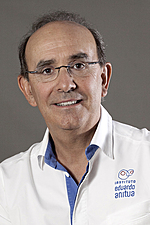
- MD, PhD in Medicine and Surgery. Specialist in Stomatology
- Director of the UIRMI -University Institute of Regenerative Medicine and Oral Implantology of the University of the Basque Country (UPV/EHU)
- Scientific Director of BTI Biotechnology Institute
- President of the Eduardo Anitua Foundation for Biomedical Research
- Medical Director of the Eduardo Anitua Clinic
MD in Medicine and Surgery at the University of Salamanca. PhD in medicine and surgery at the University of Valencia. He is specialist in Stomatology by the University of the Basque Country, continuing his studies in numerous stays in the United States and in Europe. Honorary Doctor by the University of Buenos Aires (UBA) (2018).
He combines the scientific research with the private clinical practice, as well as leading the UIRMI of the University of the Basque Country and the Foundation that bears his name.
Dr. Eduardo Anitua is known worldwide for being a pioneer in the development of techniques in bioimplantology and tissue regeneration, as well as being the author of the Plasma Rich in Growth Factors technology (Endoret®) and its application in different areas of medicine from oral and maxillofacial surgery to orthopedics, sports medicine, dermatology, rheumatology, aesthetic medicine or, more recently, ophthalmology, gynecology and general surgery, thus contributing to improve the quality of life of thousands of patients every year.
He holds 48 international patent families, and is the author of more than 200 scientific articles published in indexed journals (some of which are among the 10 most cited articles in Oral Surgery scientific literature in the world), several hundred more in clinical journals, as well as more than 25 books and surgical manuals. As a researcher, this is a productivity and scientific quality whose impact can be reflected in its 53 h-index and in his more than 15,000 accumulated scientific citations.
He is also lecturer of more than 500 courses and lectures on oral implantology and regenerative medicine in national and international congresses, and is an invited professor at more than 50 universities all around the world.
Dr Marc Balmer
Biography
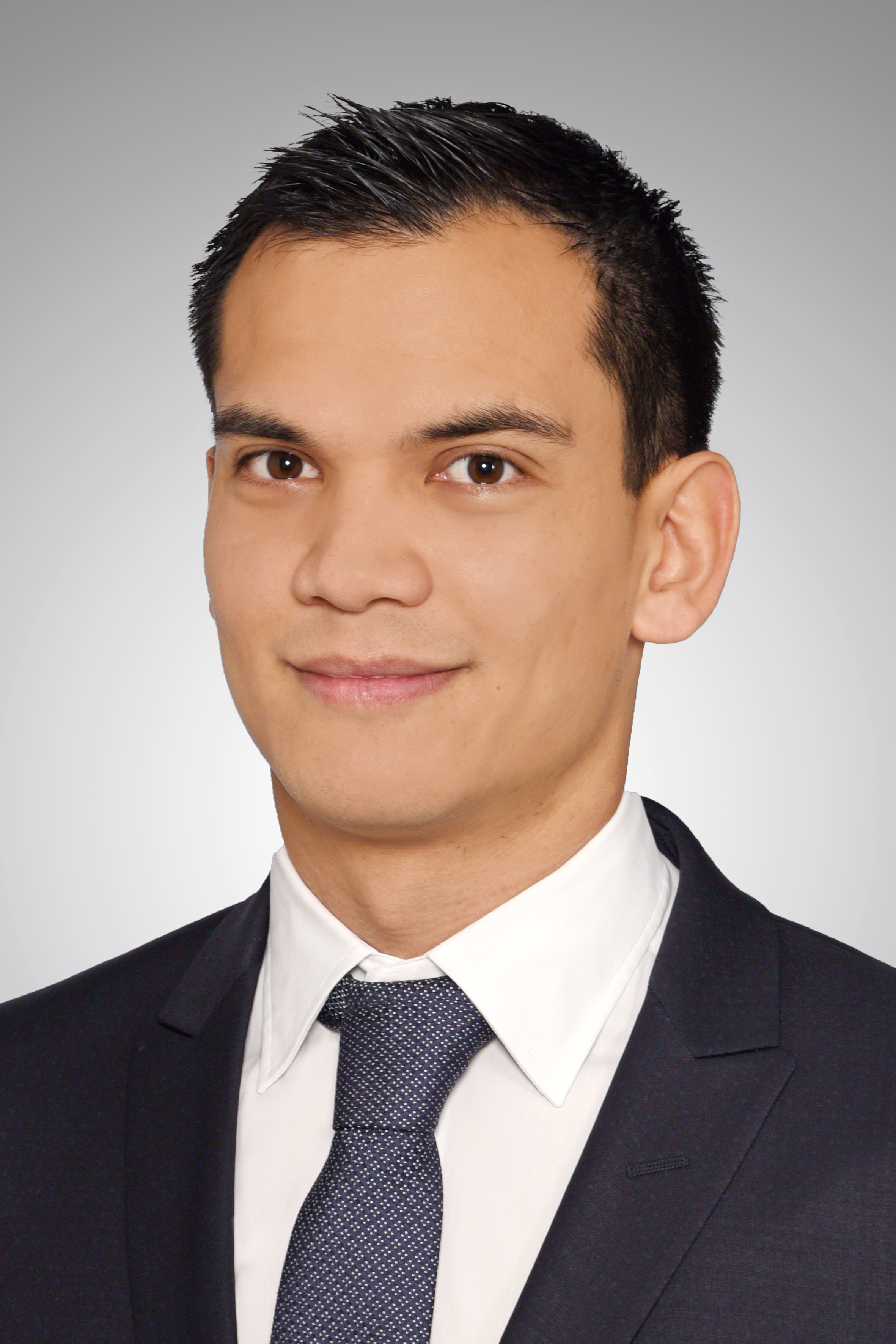
Marc Balmer is a Senior Teaching and Research Assistant at the Clinic of Reconstructive Dentistry at the University of Zurich, Switzerland. He graduated with a Masters in Dental Medicine at the Center of Dental Medicine, University of Zurich, Switzerland in 2008 and received the “doctor medicinae dentium” (Dr. med. dent.) from the same University in 2012.
After a 6-year period as full-time practitioner in a private practice in Bülach, Switzerland, he received a certificate of postgraduate education in general dentistry from the Swiss Dental Association.
2014 - 2017 he completed a 3-year postgraduate training in Reconstructive Dentistry at the Clinic of Reconstructive Dentistry at the University of Zurich, which lead in 2018 to the title of Specialist of Reconstructive Dentistry from the Swiss Society of Reconstructive Dentistry.
Dr. Balmer received a Master in Oral Implantology from the University of Zurich in 2019.
Since 2017 he serves as a full-time Senior Teaching and Research Assistant at the Clinic of Reconstructive Dentistry at the University of Zurich, Switzerland. His clinical focus is on the treatment of complex and aesthetic cases using all aspects of reconstructive dentistry including implant dentistry. He is responsible for the knowledge management and the digital education at his clinic. His scientific interests include prosthodontics, implant dentistry with a focus on ceramic materials. He has published numerous scientific and clinical articles.
Prof Avijit Banerjee
Biography
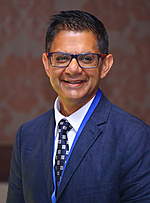
Avijit is Professor of Cariology & Operative Dentistry / Hon. Consultant and Clinical Lead, Restorative Dentistry at the Faculty of Dentistry, Oral & Craniofacial Sciences, King’s College London / Guy’s & St. Thomas’ Hospitals Foundation Trust, London, UK. He holds the positions of Head of Conservative & MI Dentistry, Director of Education (UG) and Programme Director of the innovative KCL distance-learning Masters in Advanced Minimum Intervention Dentistry (open to dentists and therapists: google “KCL AMID” for more info). He also leads the Cariology & Operative Dentistry research programme at the world-leading Faculty (as part of the Centre of Oral & Clinical Translational Science), researching, publishing and lecturing internationally about MI operative caries management and adhesive dental biomaterials (>120 publications, >£2.5 million research income, supervision of 5 post-doctorate, 16 doctorate and 24 masters students to date). He acts as an international R&D KOL for many international Industry partners, including 3M Oral Healthcare, GCE / UK, Septodont, Dentsply Sirona, Colgate and P&G Oral B. Avijit is primary author of Pickard’s Guide to Minimally Invasive Operative Dentistry (9th & 10th editions; OUP, 2015), a definitive and globally respected text in its field, amongst other book editorships (Minimally Invasive Esthetics, Elsevier (2015)) and chapter contributions (including, amongst others, a caries management chapter in The Principles of Endodontics 2nd ed, OUP, 2013; 3rd ed, 2019). He is editor-in-chief of Oral Health & Preventive Dentistry (Quintessence Ltd) and an editorial board member of Journal of Dental Research, Dental Update, British Dental Journal, International Journal of Adhesion & Adhesives, and the Primary Dental Journal. He is a member of the British Dental Association Health & Science Committee also, all whilst maintaining wet-fingered specialist clinical practice in Restorative Dentistry, Prosthodontics & Periodontics. He is the past-President of the BDA Metropolitan Branch Section 2019-20 as has consistently been voted by his peers as one of the top ten most influential individuals in the UK dental profession over the past 5 years (FMC Publications).
Dr Stephen Barter
Biography
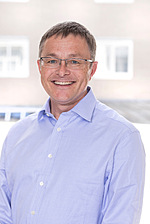
Stephen is an oral surgeon at Perlan Specialist Centre, Eastbourne, UK as part of a multidisciplinary team, working primarily in the field of implant reconstruction and regenerative surgery. He graduated from Guy’s Hospital, London in 1985 and was awarded the MSurgDent of the Royal College of Surgeons of England in 2000. He has been involved in the field of implantology since 1993, clinically and in teaching, research, and publications.
Following ten years as Lecturer and Specialist in the Department of Periodontology, Eastman Dental Institute, University College London, he is now Senior Lecturer and Hon. Consultant, Centre for Oral Immunobiology & Regenerative Medicine and Centre for Oral Clinical Research, Barts & The London School of Medicine and Dentistry, Queen Mary University of London (QMUL). He is also a unit lead in the Masters program in implantology at Bristol Dental school.
He is a Fellow of the ITI, a past Chairman of the UK and Ireland Section, has served on ITI committees at ITI Centre in Basel as well as may ITI working groups, and is the co-author of ITI Treatment Guide 9 – Implant Therapy in the Geriatric Patient. He is now an editor of the ITI Treatment Guide series. He has also published in peer-reviewed journal and contributed chapters to scientific books.
Dr Rino Burkhardt
Biography
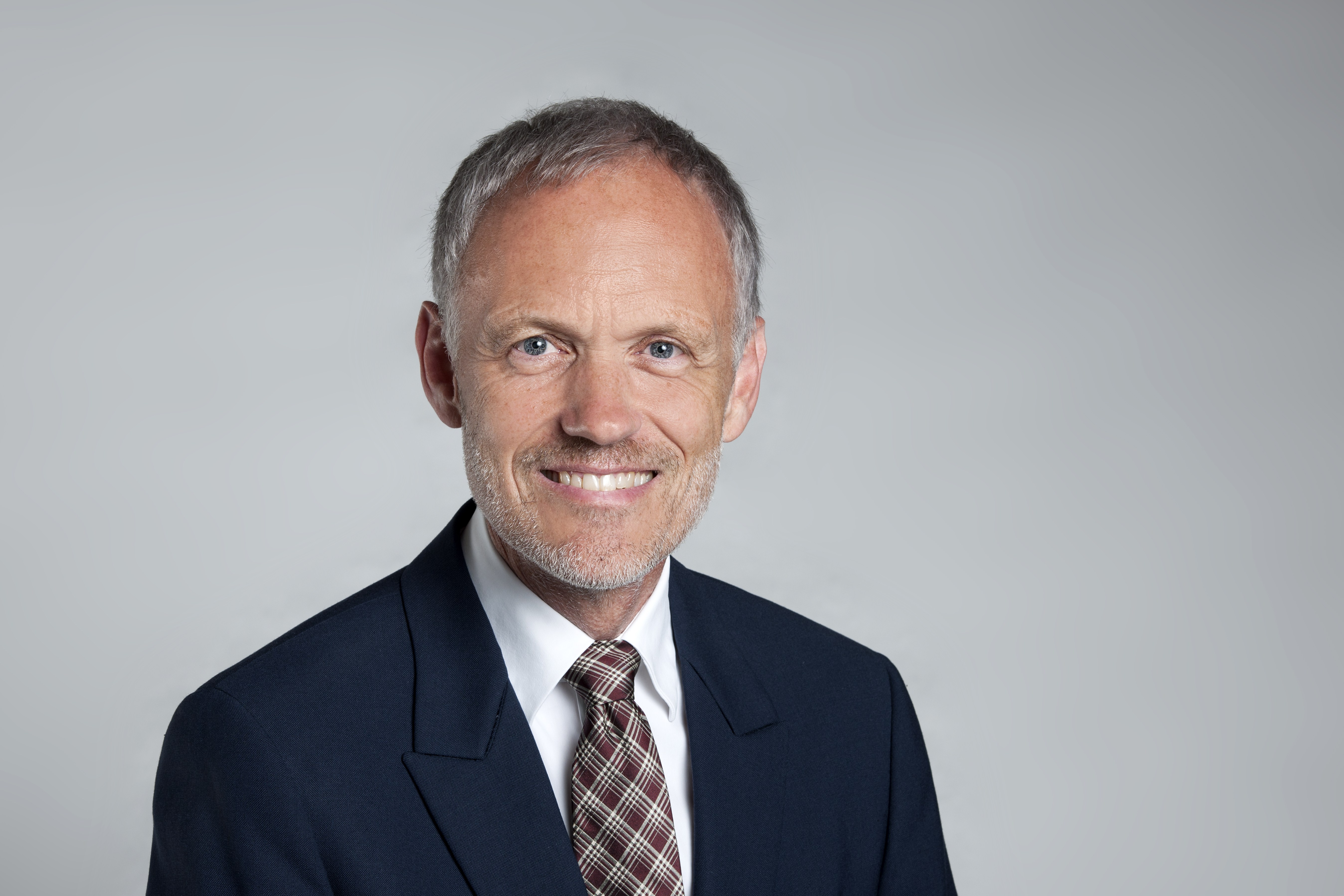
Rino Burkhardt graduated from the University of Zurich, Switzerland, and received his doctorate from the Medical Faculty of the same University. He completed his postgraduate education at the Department of Periodontology of the University of Berne, Switzerland, and is an SSP (Swiss Society of Periodontology) and EFP (European Federation of Periodontolgy) board certified specialist in periodontology.
Besides his practice as a periodontist he is involved in clinical research and won a prize for his basic works of blood microcirculation after surgical interventions (European Federation of Periodontology). Since 1996 he runs a private clinic in Zurich, limited to periodontology and implantology. He is a senior lecturer at the University of Zurich and honorary professor at the University of Hong Kong. He is the former president of the Swiss Society of Implantology and current vice president of the Clinical Research Foundation for the Promotion of Oral Health.
Dr Nick Claydon
Biography
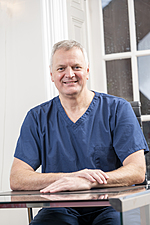
Nick Claydon is a graduate of the University of Wales College of Medicine (Cardiff, 1986) and is registered to the General Dental Council. He attained his MScD in Periodontal research at the University of Wales and his PhD from the University of Bristol entitled, Development and Application of Methods to Study Plaque Control by Dental Health Products. He was accredited as a specialist in Periodontics by the General Dental Council in 2000. Nick is a member and examiner for the Royal College of Surgeons (England), is a Faculty member of the British Society of Periodontology and a Fellow of the Higher Education Academy. He is currently a Clinical Research Fellow and Lecturer at Bristol Dental School and in addition, is a Clinical Lecturer in Implantology at Cardiff Dental School.
Prof Nikos Donos
Biography
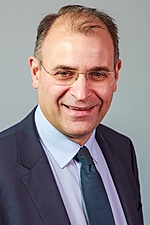
Professor Nikos Donos is the Chair of Periodontology & Implant Dentistry, the Head of the Center for Oral Clinical Research (COCR) and the Lead for the Center of Oral Immunobiology & Regenerative Medicine (COIRM) at the Institute of Dentistry, Barts & The London School of Medicine and Dentistry, Queen Mary University of London (QMUL). COCR specializes in the provision of randomized controlled clinical trials and experimental medicine studies in oral/dental health.
In 2009, Professor Donos was awarded the title of Honorary Professor at the Faculty of Dentistry in Hong Kong and in 2012 he was awarded the title of Adjunct Professor at the Dental School, Griffith University, Australia. In 2015, Professor Donos was awarded the title of Honorary Professor at UCL-Eastman Dental Institute.
In 2011, Professor Donos was awarded the prestigious IADR-Periodontology Group Award in Periodontal Regenerative Medicine during the annual International Association of Dental Research (IADR) meeting in San Diego, California. Furthermore, in June 2011, Professor Donos together with his research team, received a commendation certificate during the prestigious Medical Futures event for their (UCLB) patented technology which is based on their research work on synthetic peptide drugs for bone, blood vessels and nerve regeneration.
Professor Donos is the President elect for 2020 at the British Society of Periodontology (BSP), a board member at the Osteology Foundation and the Academic Representative at the Committee for Association of Dental Implantology (ADI).
Professor Donos is involved as editorial board member in a number of international and national peer-reviewed journals in the field of Periodontology and Implant Dentistry especially in relation to regenerative procedures/implant surgery and has published extensively in both fields. Professor Donos has published more than 200 scientific publications in the field of Periodontology and Implant Dentistry which is a testament to his professional and scientific commitment in the relevant fields.
The clinical expertise of Professor Donos is in the field of Periodontics and Implant Dentistry and his clinical research focus is in the area of wound healing following treatment of periodontal disease/peri-implantitis and in the field of bone and soft tissue regeneration, topics that he regularly lectures on at an international level.
Dr Ian Dunn
Biography
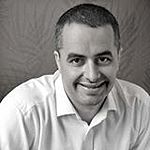
Ian is a Specialist Periodontist based in Liverpool and Wilmslow. He is the former teaching lead in Periodontics and Senior Clinical Teacher in Periodontics at Liverpool University and lectures around the UK with Phil Ower and the PerioCourses team. Ian is the Commercial Liaison Officer for the British Society of Periodontology and is part of the BSP Faculty.
Mr Julian Ekiert
Biography
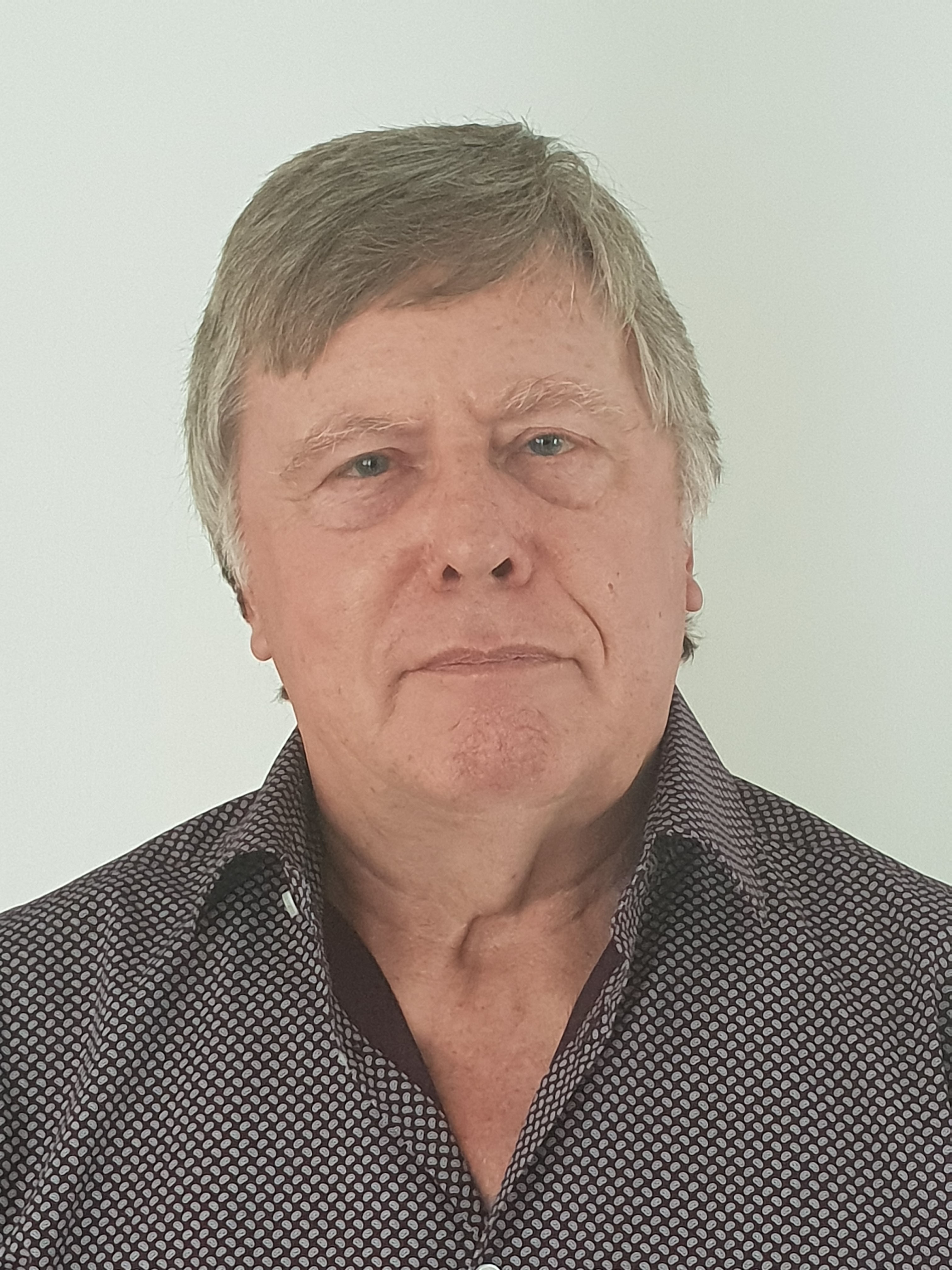
Julian has suffered with gum disease for more than 40 years, but amazingly it is now under control or most importantly, stable.
In his professional life he is a qualified accountant and worked in most sectors of industry and spent most of his time in the broadcasting sector.
Became involved with what became the “Patient Forum” in the mid 2010’s and most significantly with the production of “Sound of Peridontitis”.
His last 18 years were spent in Geneva as CFO with the European Broadcasting Union (EBU) or as you would probably know it, “Eurovision”.
He is married with one daughter and one wonderful grandson.
Dr Nikolaos Gkranias
Biography
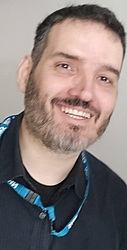
Dr Nikolaos Gkranias qualified in Dentistry from Athens University. In 2003, following his military service as a dentist in the Greek Army, he was accepted as a postgraduate at UCL Eastman Dental Institute’s 3 year MClinDent Course in Periodontology. He graduated in 2006 and he was awarded with “Distinction” a MClinDent in Periodontology as well as a European Federation in Periodontology (EFP) Certificate in Periodontology. In 2014 he was awarded a PhD in Clinical Periodontology under the theme of “Associations of Periodontitis and Diabetes Mellitus. Between years 2009 and 2016 he was a Clinical Lecturer and Speciality Dentist in Periodontology Unit, at UCL Eastman Dental Institute and Eastman Dental Hospital. In June 2016, he was appointed Senior Clinical Lecturer & Honorary Consultant in Periodontology in the newly found Centre for Oral Clinical Research (COCR), Barts & The London School of Dentistry, Queen Mary University of London.
Prof Filippo Graziani
Biography
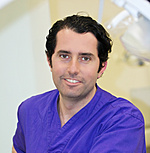
Filippo Graziani is Full Professor of Periodontology of the University of Pisa (Italy). He is responsible of the Unit of “Periodontology, Halitosis and Periodontal Medicine” of the University Hospital of Pisa. At the present is also Visiting Professor in Periodontology at UCL of London (Eastman Institute) and Honorary Professor at the Faculty of Dentistry, Hong Kong. His clinical activities are fully dedicated to Periodontology and e runs his private practice limited to periodontology.
He obtained his DDS in Pisa and then a PhD in Oral and Maxillo-Facial Surgery. He gained the Mastership in Periodontology at the Eastman Dental Institute of London. He also holds a Master in Clinical research and an Oral Surgery Specialty.
He has been elected as President of the European Federation of Periodontology in 2019. He is the coordinator of the European Day of Periodontology 2017 and chairman of the European Project Committee of the European Federation of Periodontology.
His research activities focus on periodontal surgical treatment and periodontal medicine. He published more than 70 scientific manuscripts in impacted factor journals. Reviewer of numerous scientific journals, associate Editor of Minerva Stomatologica and member of the Editorial Board of the Journal of Clinical Periodontology.
He was awarded in 2013 with Earl Robinson Award for Periodontal Regeneration of the American Academy of Periodontology, in 2015 with the Clinical research -Jaccard Prize of the European Federation of Periodontology and in 2017 the Goldman prize of the Italian Society of Periodontology and Implantology. He won numerous research grants from institutional and private companies to run his research activities.
Prof David Herrera
Biography

Full-time Professor of Periodontology, University Complutense of Madrid (UCM)
Associated Dean for Clinics (UCM)
Co-director of the Graduate Program in Periodontology (UCM), accredited by European Federation of Periodontology (EFP)
President of the Spanish Society of Periodontology (SEPA, 2013-2016)
President of the Continental European Division (CED) of the International Association for Dental Research (IADR)
Vice-president of the Periodontal Research Group (PRG) of the International Association for Dental Research (IADR)
Scientific activity within Periodontal & Periimplant Etiology, Therapy, Microbiology and Antimicrobials: more than 100 scientific publications in JCR journals.
Mr Shaun Hodge
Biography
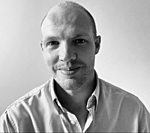
Shaun Hodge graduated from the University of Bristol in 2015. Following his foundation training in South Wales, he spent a year as a Senior House Officer in the Department of Oral and Maxillofacial Surgery at the Royal Devon and Exeter Hospital. He is a member of the Faculty of Dental Surgery with the Royal College of Physicians and Surgeons, Glasgow.
Shaun is currently a Research Associate at the University of Bristol, where he contributes to the Clinical Trials Unit, as well as undergraduate teaching. He also works in private dental practice at the The Pines in Whitchurch, Cardiff, with a particular interest in the management of periodontal disease.
Prof Ronald Jung
Biography
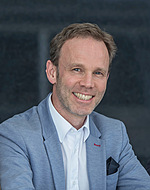
Ronald Jung is trained in oral surgery, prosthodontics and implant therapy. He is currently Head of Division at the Implantology Centre of Dental Medicine, Clinic for Fixed and Removable Prosthodontics and Dental Material Science at the of the University of Zürich.
In 2006 he worked as Visiting Associate Professor at the Department of Periodontics at the University of Texas Health Science Centre at San Antonio, USA (Chairman: Prof. Dr. D. Cochran). In 2008 he finalized his "Habilitation" (venia legendi) in dental medicine and was appointed at the University of Zürich.
In 2011 he finished his PhD doctorate degree at the University of Amsterdam, ACTA Dental School, The Netherlands.
In 2013 he worked as Visiting Associate Professor at the Department of Restorative Dentistry and Biomaterials Sciences at Harvard School of Dental Medicine in Boston, USA.
In 2015 he was promoted to full Professorship for Implantology at the University of Zurich.
He is an accomplished and internationally renowned lecturer and researcher, best known for his work in the field of hard and soft tissue management and his research on new technologies in implant dentistry.
He is currently Secretary General of the EAO, President of the Swiss Society of Reconstructive Dentistry and member of the Board of Directors of the Osteology Foundation.
Professor Moritz Kebschull
Biography
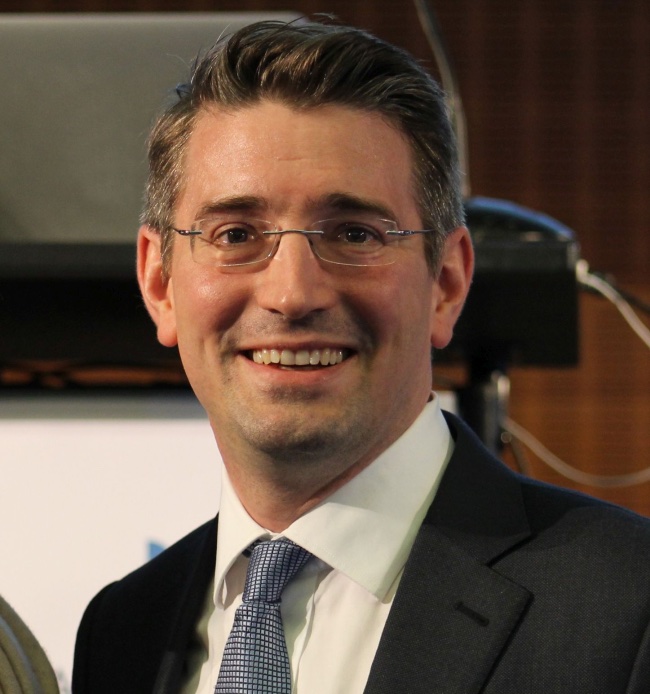
Moritz Kebschull is Professor of Restorative Dentistry at the University of Birmingham in England. In addition, Moritz holds an adjunct professorship at Columbia University College of Dental Medicine in New York. Before coming to Birmingham, Moritz was an Associate Professor at the University of Bonn in Germany.
Moritz graduated from the University of Münster in Germany in 2004. He is a board-certified specialist in periodontology and holds two research doctorates in mucosal immunology and periodontology, respectively. In addition to his dental degrees, Moritz also earned a business degree from top-ranked ESCP Business School in Paris.
Moritz’ research focuses on molecular patterns helping to differentiate and stratify periodontal disease patients. His work won 18 scientific awards, including the IADR Socransky and Gies awards, and the German Miller Prize.
Moritz has served on the executive board of the German Society of Periodontology for six years and is now member of Council of the British Society of Periodontology. He has chaired the development of five S3 guidelines in Germany. Moritz is co-leading the European Federation of Periodontology and European Society for Endodontology guideline processes, as well as the adoptions of the supra-national guidelines in the UK and Germany. Moritz is a member of the EFP Executive Committee, scheduled to become EFP president in 2024.
Prof Niklaus Lang
Biography
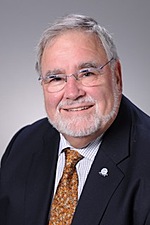
Professor Emeritus, University of Berne, Switzerland, Chairman 1980-2008; Professor of Implant Dentistry, The University of Hong Kong 2008-2012,
Dr. odont. h.c., Aristotle University of Thessaloniki, Greece, 2011, Honorary Professor University of Aarhus, Denmark 2006-2011; odont. Dr. h.c., University of Gothenburg, Sweden, 1997; Honorary Fellow RCPS Glasgow, 1995; Dr. odont. h.c., University of Buenos Aires, Argentina, 1994; Dr. odont. h.c., University of Athens, Greece, 1989; PhD, University of Berne, 1978; Master of Science in Periodontics, University of Michigan, Ann Arbor, 1975; Dr. med. dent., University of Berne, 1970;
Honorary Professor: The University of Hong Kong 2013-2019, University College London 2012 -, University of Zürich 2013 -, Honorary Research Consultant National Dental Centre of Singapore 2013-2019
Guest Professor University of Otago, Dunedin, New Zealand, 2008, National University of Singapore, 2002, 2004, 2007, 2009, 2013, 2016, 2019; University of Michigan, USA, 2005, University of Göteborg, Sweden, 2000, University of Queensland, Brisbane, Australia, 1999/2000, University of Aarhus, Denmark, 1994, The University of Hong Kong, 1994, University of Texas, Health Science Center at San Antonio, Texas, USA, 1986; Professor Extraordinario, Universidad Autonoma de Nuevo Leon, Monterrey, Mexico, 1980.
Published over 730 articles in peer-reviewed scientific journals and several textbooks (h-Index: 111). Over 3500 lectures in 5 continents. Editor-in-chief emeritus: Clinical Oral Implants Research 1990-2016,
Honorary member of: the American Academy of Periodontology AAP, the Danish, German, Helenic, Italian, Lithuanian, Slovenian, South African and Swiss Societies of Periodontology, Danish Society for the Study of Periodontology, Italian Society of Osseointegration, International Team of Implantology (ITI), Australian-New Zealand Academy of Periodontology (ANZAP), Ukrainian Academy of Periodontology (UAP)
German Society of Implantology (DGI). Platinum medal of the Spanish Society of Periodontology and Implant Dentistry SEPA, Distinguished Scientist Award of the EFP 2015, Honorary member of the British Society of Periodontology (BSP), Norton M. Ross Award for Excellence in Clinical Research of the American Dental Association
Prof Phoebus Madianos
Biography
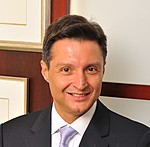
Dr. Phoebus Madianos is Professor of Periodontology and Dean at the School of Dentistry, National and Kapodistrian University of Athens. He received his DDS degree from the same University and his clinical certificate in graduate Periodontics, as well as his PhD degree in Oral Microbiology from Gothenburg University. After working as Assistant Professor at the University of North Carolina, he returned to Athens and joined the department of Periodontology at the University of Athens in 2003. He is currently the Director of the Graduate Program in Periodontology and of the Osseointegrated Implant Unit of the Dental School at the University of Athens.
He has been President of the European Federation of Periodontology and a Board member of the Continental European Division of the International Association for Dental Research. He is currently the chair of the Scientific Affairs Committee of EFP and of the organizing committee of EuroPerio10.
He has published over 80 scientific papers in international journals, which have received over 7500 citations, in the fields of periodontal pathogenesis, periodontal medicine and Implantology.
He has received international awards for his research activity, including the "Hans-R. Mülhemann Research Prize" from the Swiss Society of Periodontology in 1997, the "Anthony A. Rizzo Award" from the International Association for Dental Research in 2004, and the "Clinical Research Award" from the American Academy of Periodontology in 2006.
Dr Nikos Mardas
Biography
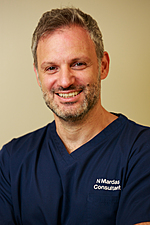
Dr Nikos Mardas qualified in Dentistry from Athens University in 1992; He completed his 3-year specialist training and the MS degree in Periodontology in 1997 and his PhD degree in 2005 at the Royal Dental College, University of Aarhus, Denmark.
During the period 2005-2015, he was a Senior Lecturer / Honorary Specialist and M. Clin. Dent/EFP program co-ordinator in Periodontology Unit, at UCL, Eastman Dental Institute. In July 2015, he was appointed Senior Clinical Lecturer & Hon. Consultant in Periodontology in Barts & The London School of Dentistry, Queen Mary University of London. He is Educational Supervisor for Periodontology Specialty Trainees and the Periodontology Lead for the Undergraduate Curriculum. He is also consultant Periodontist in 4 private practices.
Dr Mardas has published more than 60 papers in national and international peer-reviewed journals and textbooks in the field of periodontal, bone regeneration and implant dentistry. He is editorial board member in Clinical Oral Implant Research and regular reviewer for all the leading journals in periodontology and implant dentistry. He has participated in consensus meetings of EAO, ITI, EFP, SENAME and EADE and he is member of the International Experts Panel for Osteology Foundation. Dr Mardas has extensively lectured nationally and internationally and in 2011 was awarded the Basic Research Prize, of the European Association for Osseointegration. During the period 2015-2018 was the Education Delegate for the UK & Ireland ITI section and Faculty member for British Society of Periodontology.
Dr Lochana Nanayakkara
Biography
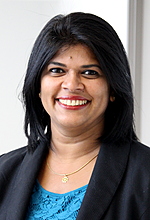
Lochana Nanayakkara qualified in Dentistry in 1992. After working as a House Officer in Conservative dentistry, Senior House Officer in Oral and Maxillofacial Surgery and in General Practice, she gained a Fellowship in Dental Surgery before undertaking a 2 year Masters Degree. She went on to pass the intercollegiate Specialty Fellowship examination after completing a 5 year Specialist Training Program in Restorative Dentistry.
In 2003, Lochana was appointed as a Consultant in Restorative Dentistry. She was the Training Program Director (TPD) for Dental Core Training in North East London and for Restorative Specialty Training for London and KSS until 2019. She was also a Specialty Advisor in Restorative Dentistry to the Royal College Surgeons of England. In 2018, she was appointed as the Director of Dental Education for BartsHealth NHS Trust. She became an Honorary Senior Lecturer in 2019 and was appointed the Co-Director of the DClinDent Prosthodontic Programme at QMUL.
Alongside her role as a Consultant, she is also the Clinical Lead for patients with complicated Medical Histories including Haemophilia. Lochana launched the Dental Service for the North London Adult Haemophilia Network in 2014 and is the President-Elect of the Dental Committee of the World Federation of Haemophilia.
Prof Tim Newton
Biography
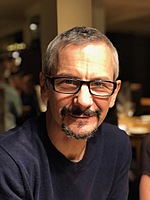
Tim Newton is Professor of Psychology as Applied to Dentistry at King’s College London Dental Institute. He has worked in the behavioural sciences in relation to dentistry for over 25 years, and his interests include developing the theoretical understanding of how behaviour influences health, the management of people who are anxious about attending for dental treatment, and the working life of the dental team.
Prof Luigi Nibali
Biography
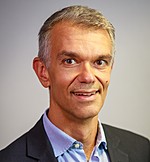
Prof. Luigi Nibali graduated from the University of Catania in Italy and was awarded a PhD in Periodontology at University College London in 2006. He previously worked as Lecturer and then Reader in Periodontology at the UCL Eastman Dental Institute and then at Queen Mary University of London. He is currently Professor/Honorary Consultant, Academic Lead and Director of the Postgraduate program in Periodontology at King’s College London, based at Guy’s Hospital. Prof. Nibali has widely published in the medical and dental literature and received several International research prizes in periodontology. His research interests range from periodontal medicine, genetics and microbial aetiopathogenesis and minimally-invasive periodontal treatment of intrabony defects and furcations.
Mr Amit Patel
Biography
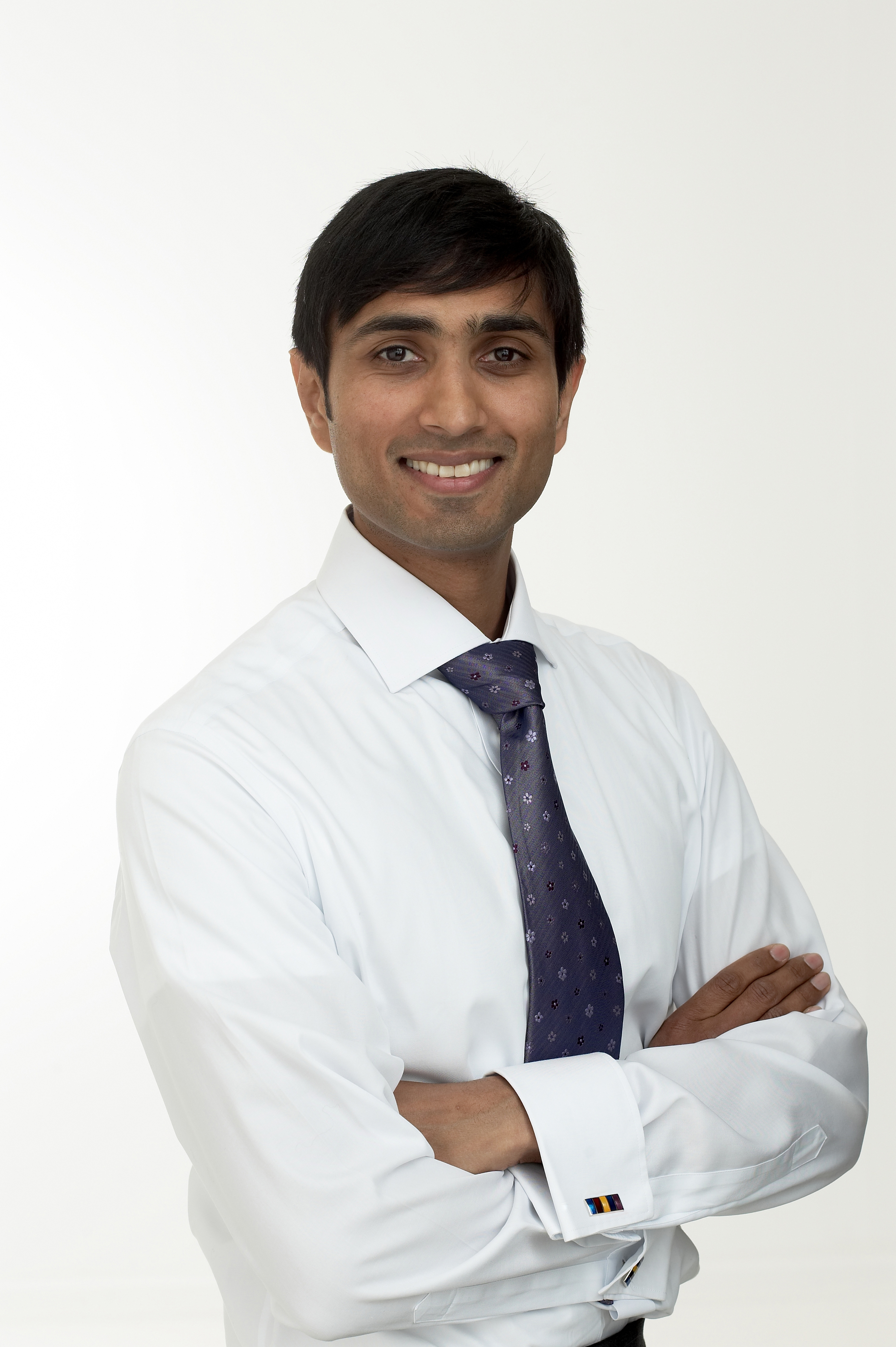
Amit is the principal specialist and director at Birmingham Dental Specialists in Birmingham. His special interests are dental implants, regenerative and aesthetic Periodontics.
Amit graduated from the University of Liverpool and completed a 4 year specialist training programme in Periodontics at Guy’s, King’s & St Thomas’ Dental Institute. Amit was an Associate Specialist in Periodontics at the Birmingham Dental School for 9 years and is still an Honorary Clinical Lecturer at the University of Birmingham School of Dentistry . He has taught at undergraduate and postgraduate level, including lecturing to dental practitioners both in the UK and internationally. Amit is also on the committee of the Association of Dental Implantology and the President Elect.
Professor Marc Quirynen
Biography
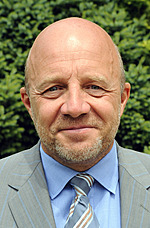
Professor M. Quirynen graduated in 1980 as dentist and finished in 1984 his training in periodontology at the department of Periodontology (both Catholic University Leuven). In 1986 he presented his PhD. In 1990 he was appointed professor at the Faculty of Medicine of the Catholic University of Leuven to teach periodontology and anatomy. His research deals mainly with oral microbiology, oral malodour, simplification/optimization of periodontal therapy including implant surgery, benefits of L-PRF. He published over 400 full papers in international peer-reviewed journals. He is member of the editorial board of the Journal of Clinical Periodontology (associate editor), Clinical Oral implants Research, Journal of Dental Research, ….
Prof Michele Reners
Biography
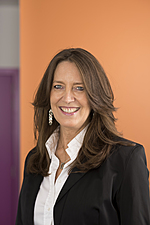
Dr Reners is President of the Belgian Society of Oral Implantology, she was President of EuroPerio 9 and former President of EFP. She obtained a DDS from the University of Liège Dental School and an MS in Periodontology at University of Paris 7 Diderot. After starting her own practice in Liège, she covered different positions in the academic world, both in Liège and Paris, as scientific collaborator, lecturer, senior lecturer and has led the Department of Periodontology at the Regional Hospital of Liège for 20 years. Dr Reners is currently editor-in-chief of “L’Information Dentaire” a weekly French dental journal. She has also covered different positions in scientific and professional organisations, such as the Belgian Society of Periodontology and the Recognition Committee for Periodontologists.
Dame Sally Davies
Biography
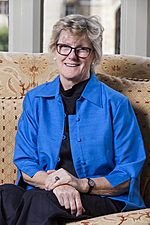
Dame Sally Davies was installed as the 40th Master of Trinity College on 8 October 2019. She joined the College after a distinguished career as a clinical academic and public servant.
Dame Sally graduated from Manchester Medical School in 1972 and became a Consultant Haematologist specialising in sickle cell disease. In 1997 she was appointed as Honorary Professor of Haemoglobinopathies at Imperial College.
Dame Sally was the Chief Scientific Adviser to the Department of Health from 2004-2016. In 2006 she founded the National Institute of Health Research (NIHR) and was the Inaugural Director. In 2013 she established and became a Non-Executive Director of Genomics England Ltd (GEL) which sequenced 100,000 whole genomes of NHS patients.
Dame Sally was the Chief Medical Officer for England and Senior Medical Advisor to the UK Government from 2011-2019. She authorised 11 independent annual reports and 3 special reports: Medical Cannabis, Screen Times for Children and Obesity in Childhood.
She has become a leading figure in global health including serving as a member of the World Health Organisation (WHO) Executive Board 2014-2016 and as co-convener of the United Nations Inter-Agency Co-ordination Group (IACG) on Antimicrobial Resistance (AMR) reporting in 2019.
She has championed the need to address AMR across all sections: human and animal health, agriculture and environment within the UN family and globally. In 2019 Dame Sally was appointed as the UK Government’s Special Envoy for Global AMR.
In the 2020 New Year Honours, Dame Sally became the second woman (and the first outside the Royal family) to be appointed Dame Grand Cross of the Order of the Bath (GCB) for services to public health and research having received her DBE in 2009. She was elected Fellow of the Royal Society in 2014 and a member of the National Academy of Medicine, USA in 2015. She has been awarded more than 30 honorary doctorate degrees.
Qualifications
GCB DBE FRS FMedSci UK Special Envoy on AMR, Department of Health and Social CareProf Anton Sculean
Biography
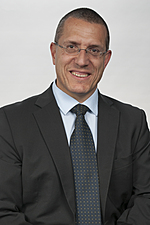
Anton Sculean is professor and chairman of the Department of Periodontology and currently the Executive Director of the School of Dental Medicine, University of Berne, Switzerland.
Prof. Sculean has authored more than 370 articles in peer-reviewed journals, 30 chapters in periodontal textbooks and has delivered more than 500 lectures at national and international meetings. He is the editor of the book Periodontal Regenerative Therapy and guest editor of the Periodontology 2000 Issue entitled “Wound Healing in Periodontology and Implantology”. Prof. Sculean serves on the editorial board of 12 dental journals and is Associate Editor of Quintessence International, Clinical Oral Investigations, and Editor in Chief of Oral Health and Preventive Dentistry.
His H-Index on Google Scholar is 76, and on Web of Science 55.
He has been a recipient of many research awards, among others the Distinguished Scientist Award of the International Association for Dental Research (IADR), the Anthony Rizzo Young Investigator Award of the Periodontal Research Group (PRG) of the IADR, the IADR/PRG Award in Regenerative Periodontal Medicine, and the Distinguished Teacher Award of the European Orthodontic Society.
Prof. Sculean is past president of the Periodontal Research Group of the IADR and of the Swiss Society of Periodontology and immediate Past President of the European Federation of Periodontology (EFP). Currently, he is the president of the International Academy of Periodontology (IAP).
His research interests focus on periodontal wound healing, regenerative and plastic-esthetic periodontal therapy, use of antibiotics, antiseptics and novel approaches such as lasers and photodynamic therapy in the treatment of periodontal and peri-implant infections.
Prof Andreas Stavropoulos
Biography
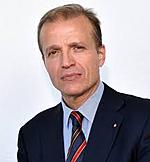
Andreas Stavropoulos (AS) after having studied dentistry in Heidelberg, Germany, and Thessaloniki and Athens, Greece, he worked a few years in private practice limited to periodontics and implant dentistry. AS joined then the Dept. of Periodontology, Aarhus University, Denmark, for postgraduate training, where he also received his Ph.D. in 2002 and his dr.odont. degree in 2011, based on preclinical and clinical studies on regenerative periodontal therapy and in association with dental implants. In 2013, AS joined Malmö University as the Professor and Chair in the Dept. of Periodontology.
AS has received several awards for his research, including the 1st Basic Research Prize of the European Association of Osseointegration (2011) and the Straumann Award in Regenerative Periodontal Medicine, conferred by the IADR (2013). He has authored several publications in international peer-reviewed journals and book chapters, and he is member of the Editorial Board in several dental journals, including the Journal of Clinical Periodontology and Clinical Oral Implants Research. AS is currently Elected Member of the Executive Committee of the European Federation Periodontology, Member of the Scientific Affairs Committee of the EFP, Member of the Education Committee of the EAO, and the Chancellor of the Periodontal Research Group of IADR.
Professor Wendy Turner
Biography
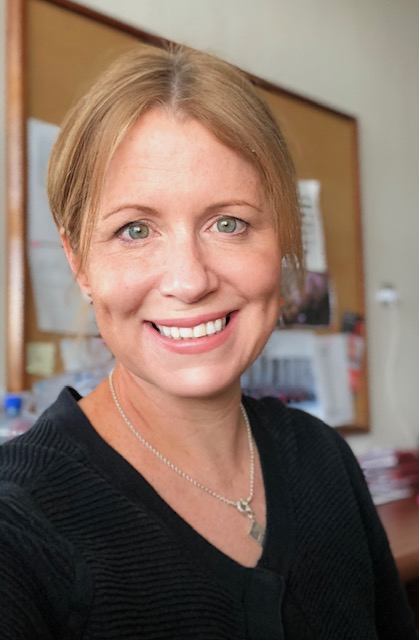
Wendy worked as a Consultant and Clinical Academic at Barts and The London School of Medicine and Dentistry for 25 years before moving to Northern Ireland in 2018 to take up the post of Professor and Consultant in Restorative Dentistry at Queen's University Belfast, and is a specialist in both Periodontics and Restorative Dentistry.
Wendy has extensive experience in teaching both undergraduate and graduate dental students, and was Training Programme Director for Specialty Training in Periodontics across London. Her research interests include systemic diseases and periodontitis, the use of antimicrobials in periodontology, and severe periodontal problems in children and she has published a number of academic papers and textbooks in Periodontology. Earlier this year, Wendy took the role of Honorary Secretary for BSP
Prof Nicola West
Biography
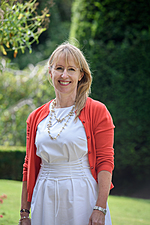
Nicola West is Professor of Periodontology and Head of the Clinical Trials Unit at the School of Oral and Dental Sciences, University of Bristol, UK.
Nicola has been the Secretary of British Society of Periodontology since 2012 and in 2019 was appointed Secretary General of the European Federation of Periodontology.
Nicola leads the Clinical Trials Unit at the Bristol Dental School conducting research at an international level, attracting substantial industrial funding alongside EC and charity grants. Current research interests include: developing periodontal research methodologies, the scientific evaluation of oral health care products, toothwear, dentine hypersensitivity, tooth staining and whitening; periodontal disease associated with Alzheimer’s Disease and cardiovascular diseases, bone augmentation and peri-implant lesions.
Since 1990, Nicola has maintained in parallel, a thriving private referral practice in the centre of Bristol undertaking specialist periodontal treatment, bone augmentation and implant placement. A particular sphere of interest includes the management of peri-implantitis lesions.



